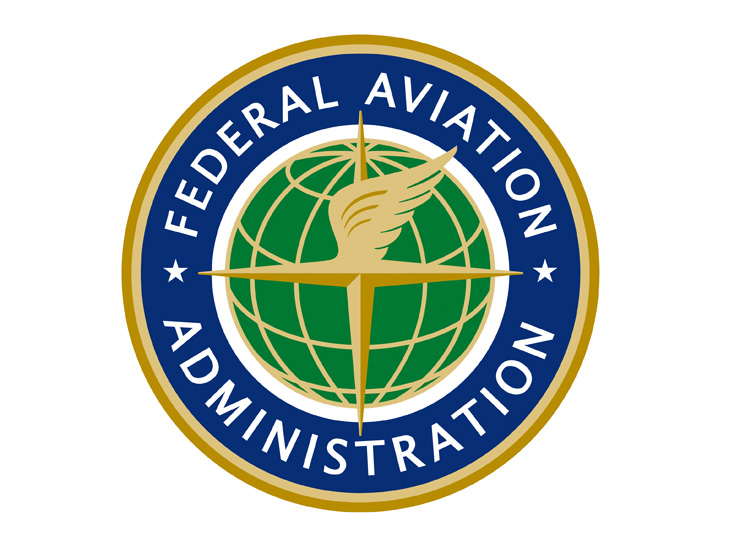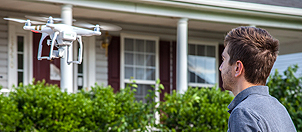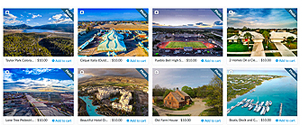Drone Advisory: FAA Deadline for “Remote ID” Compliance is Fast Approaching

September 16, 2023 is the deadline for nearly all unmanned aerial vehicles flown in the United States to be equipped with “Remote ID,” a digital broadcast signal that allows the FAA and law enforcement authorities to identify the vehicle’s owner and precise location at a distance.
Remote ID came about in 2020 in response to growing concerns about drone pilots flying in unauthorized areas (e.g. near airports, government buildings and sports stadiums) or flying their vehicles recklessly and posing a safety risk. Until now, authorities have had no means of holding lawbreakers accountable unless they were caught in the act, loitered in an area and were identified, or in some cases posted videos and boasted of their exploits online. Most perpetrators have simply fled and escaped detection.
With Remote ID, drones, once airborne, will automatically emit a digital signal that reveals the owner’s name and location, including the vehicle’s original launch site. It’s hoped that the system will deter drone operators from violating FAA flight rules (or other local laws) and if they do, that authorities can eventually track them down and apply the appropriate sanctions.
What are the penalties for flying without a Remote ID? A stiff fine, up to $30,000, and in egregious cases, the offending pilot’s FAA flight certificate might be suspended or even revoked. Without that certificate – essentially a drone pilot’s operating license – the UAV operator would no longer be able to fly.
Remote ID was controversial from the start. Drone operators expressed concerns that a mandatory identification system might invade their privacy and even violate the 4th amendment prohibition on unlawful search and seizure. It took the FAA two years to conduct a thorough review of the issues with industry stakeholders to achieve a consensus on design and implementation that would be perceived as fair and unobjectionable, and relatively easy to enforce.
Most UAV operators will likely be compliant with Remote ID. Starting last year, the FAA required all drones sold in the US after September 2022 to include the automatic signaling system as part of their manufacture. Drone operators without a pre-installed system are required to purchase a Remote ID module – at their own expense – for external installation. Remote ID is issued just once but can be updated to cover all of the drones in the operator’s current and future possession.
Not all drones require Remote ID. Drones flown for recreational purposes that weigh less than 0.55 pounds – or 250 grams – are exempt. These drones tend to be very small – often, just inexpensive “toy” drones – that operators fly on their own property (sometimes, just indoors) or in nearby parks. By contrast, all commercial drones must be Remote ID-compliant regardless of their size or weight.
Drones equipped with Remote ID must also be flown within the operator’s visual line of sight.
Other drones exempt from Remote ID are those flying in airspace zones known as FAA-Recognized Identification Areas or (FRIAs). Community-based organizations (CBOs) and schools can obtain a FRIA exemption if they intend to fly their vehicles for “educational purposes” only. It’s not entirely clear how these organizations qualify for a FRIA exemption or how “education” is defined. Can CBOs conduct experimental drone missions for non-commercial purposes and train would-be commercial pilots to pass the FAA certification test?
Other issues may arise during Remote ID’s early implementation that require further clarification. Will those initially found without Remote ID be issued a warning and given a grace period in which to comply? What about “false positives” in detection due to faulty manufacture or installation? And will authorities only intervene based on reported or observed incidents of improper drone flying or will they also conduct routine or random checks of drone vehicles – without, as it were, “probable cause” – simply to verify their registration?
As with any new and untested system, these and other Remote ID implementation issues could take some time to identify and correct. Therefore, authorities would do well to proceed cautiously. The more flexibility, restraint and basic fairness they exercise in enforcement, at least at the outset, the more likely drone fliers will embrace the new system fully over time.
|
Previous Drone News:
« More Good News for Two of the World’s Leading Air Taxi Companies
China’s EHang Hopes to Fully Commercialize Its Air Taxis By 2024 »



